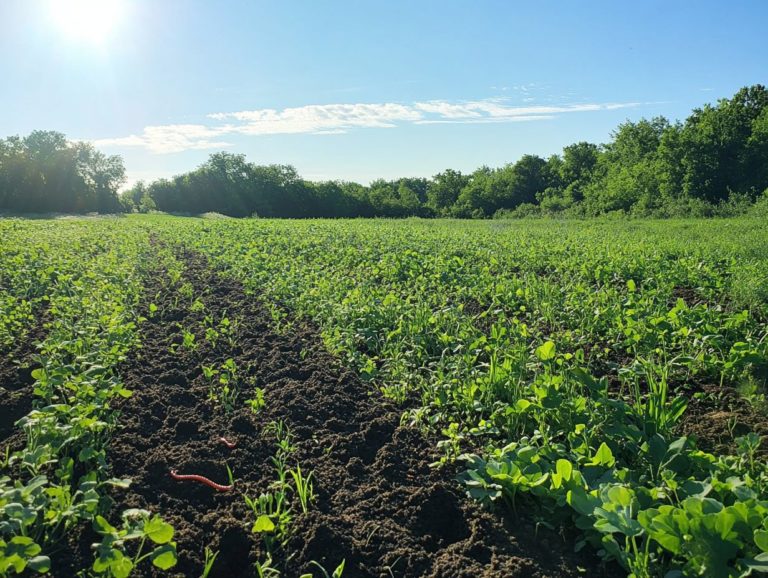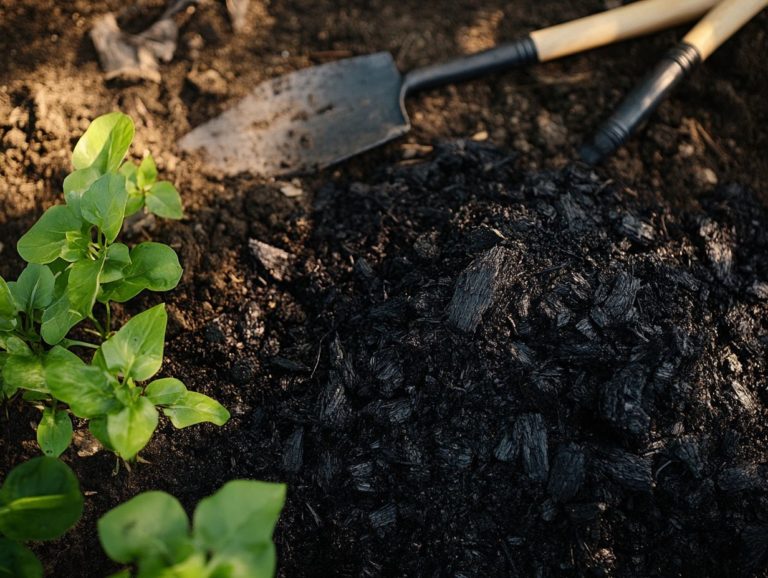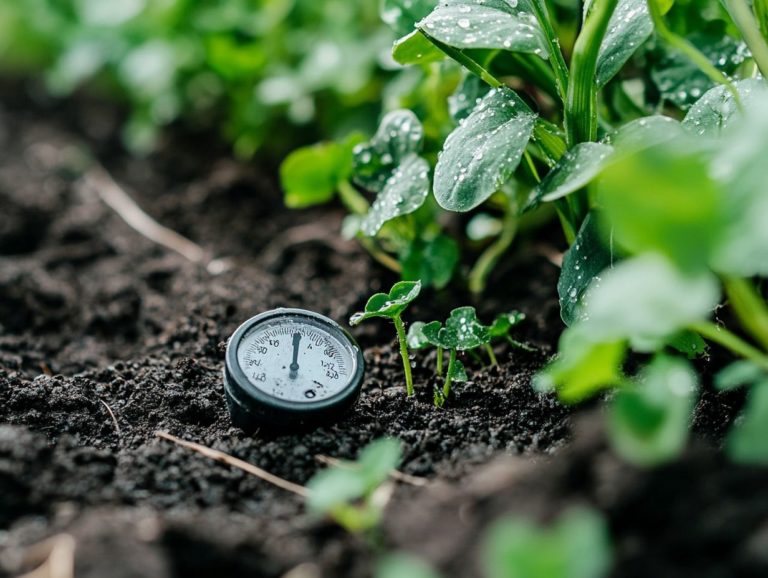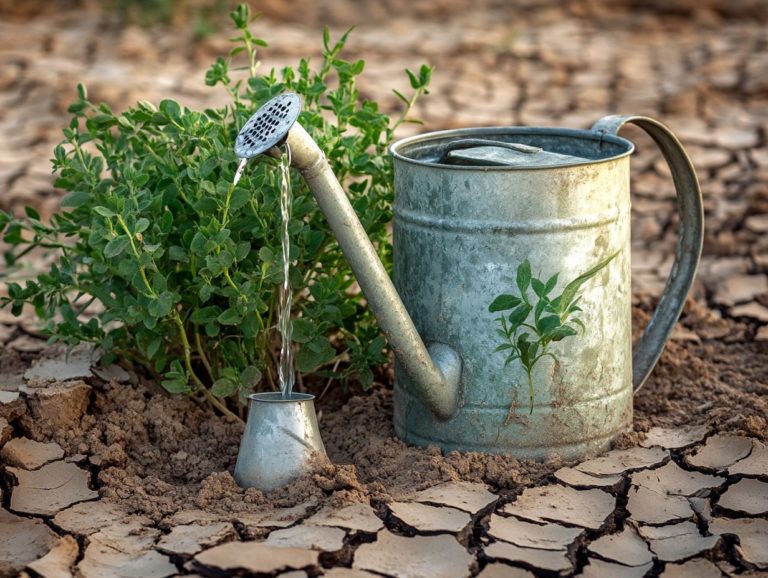Strategies for Sustainable Water Management
Water is an invaluable resource, fundamental to life and the health of our planet. As demand rises and environmental conditions shift, sustainable water management becomes paramount.
This exploration delves into the effects of effective water management on the environment, identifies key challenges, and highlights innovative strategies for conservation and efficiency. Discover inspiring case studies and simple actions you can take right now to foster a more sustainable future.
Find out how you can make a real impact today!
Contents
- Key Takeaways:
- The Importance of Sustainable Water Management
- Challenges in Water Management
- Sustainable Water Management Strategies
- Successful Examples of Sustainable Water Management
- Individual Actions for Sustainable Water Management
- Frequently Asked Questions
- What is the definition of sustainable water management?
- What are some key elements of strategies for sustainable water management?
- Why is sustainable water management important?
- What are some effective strategies for sustainable water management?
- How can individuals contribute to sustainable water management?
- What role do governments play in promoting sustainable water management?
Key Takeaways:
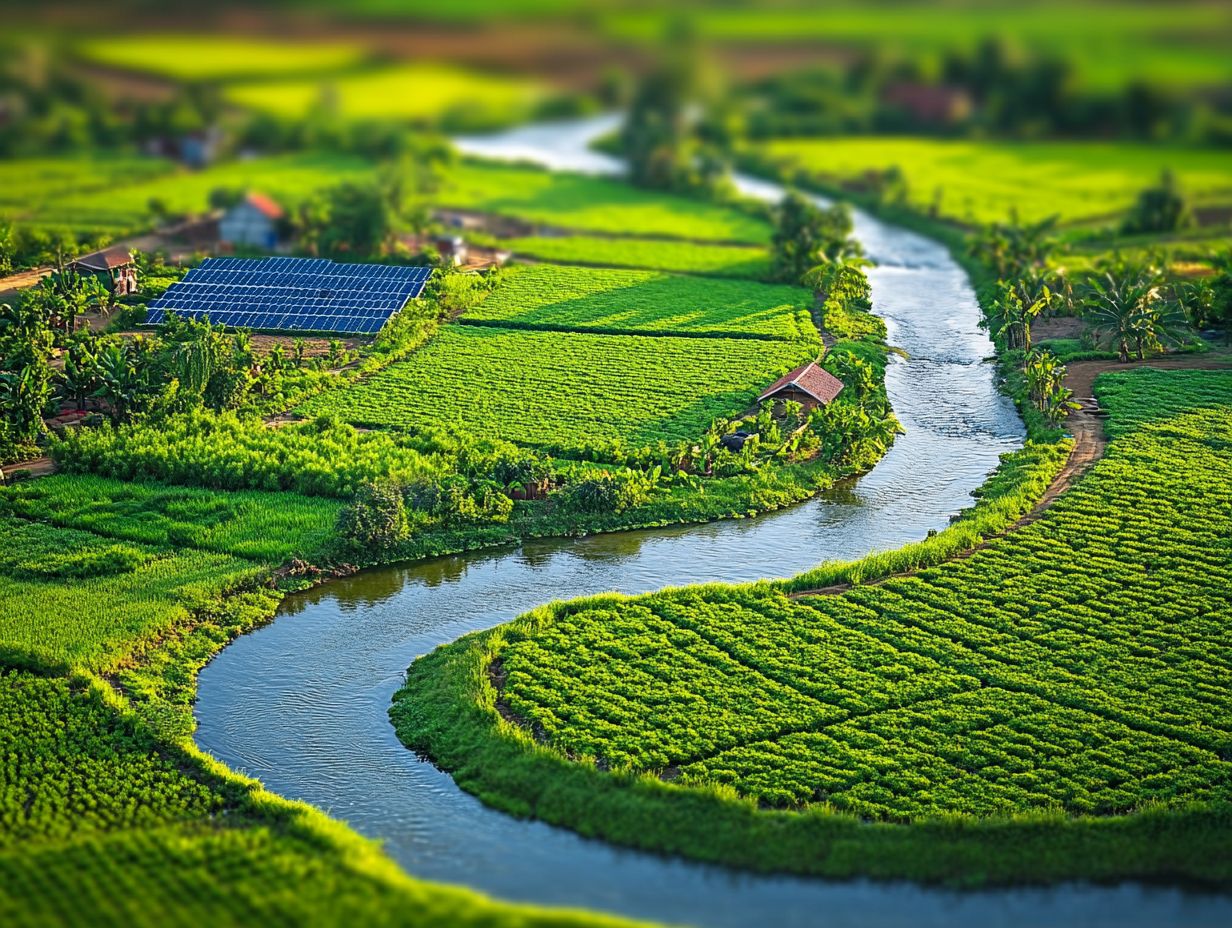
- Sustainable water management is crucial for preserving the environment and ensuring water security.
- Key challenges in water management include scarcity, pollution, and inefficient use.
- Effective strategies for sustainable water management include conservation measures and exploring alternative sources.
The Importance of Sustainable Water Management
Sustainable water management is essential for ensuring the availability and quality of water resources, particularly as global water scarcity looms larger. With growing populations and the escalating impacts of climate change, the urgency for effective water conservation techniques and intelligent management practices, such as smart water management, has never been more critical.
By adopting this holistic approach, you not only enhance water security but also contribute to the ecological health of the environment around you, fostering sustainable practices.
Understanding the Impact of Water Management on the Environment
Water management is crucial for maintaining environmental conservation and achieving the high water quality standards that are essential for healthy ecosystems. This ensures the availability of potable water.
By implementing effective water management practices, you can significantly enhance your community’s water sustainability and mitigate any adverse effects on local habitats. For example, advanced water treatment technologies, like membrane filtration (a method that uses thin filters) and biofiltration (using natural processes to clean water), effectively remove contaminants, thereby elevating the quality of water discharged into natural systems.
Adopting a complete approach to managing water fosters collaboration among stakeholders, ensuring that water use aligns seamlessly with ecological needs. Initiatives like rainwater harvesting and wetland restoration manage stormwater efficiently while providing critical habitats for wildlife. Thoughtful practices benefit both people and the environment.
Challenges in Water Management
The challenges faced in water management are truly multifaceted. Water scarcity, inadequate infrastructure, and the impacts of climate change intertwine, creating a complex web that complicates effective management of this vital resource.
Identifying Key Issues and Obstacles
Identifying key issues and obstacles in water management uncovers the stark realities of water scarcity and aging infrastructure in urban areas. When communities grapple with limited water access, they encounter challenges that extend far beyond mere availability.
Health issues, economic setbacks, and a diminished quality of life often accompany the struggle for this vital resource. Outdated pipes and treatment facilities can lead to leaks and contamination, worsening the predicament. Water utilities are essential not just for upgrading this infrastructure but also for implementing intelligent technologies that enhance conservation and distribution efficiency.
By embracing data analytics and IoT solutions, these agencies can effectively monitor usage patterns, detect leaks in real time, and engage residents in the vital conversation about conserving this precious resource. This proactive approach ultimately paves the way for more sustainable water management practices.
Sustainable Water Management Strategies
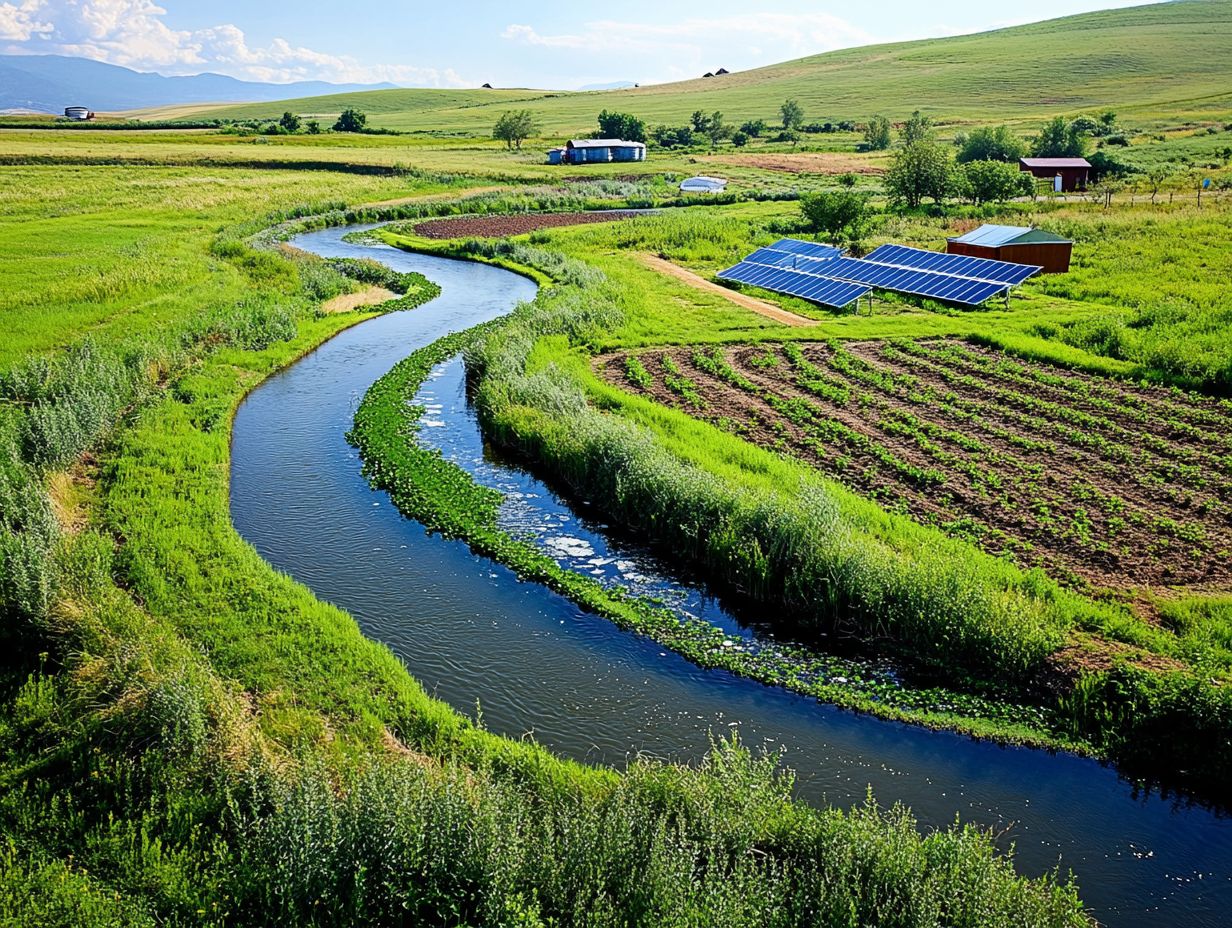
Using sustainable water management strategies for drought areas is not just necessary; it’s urgent! It is vital to tackle the pressing issues of water scarcity and enhance conservation efforts across various sectors, including agriculture and urban development. This approach also ensures economic savings.
By prioritizing these strategies, you have the power to make a difference. You can ensure a more secure and efficient use of water resources for future generations, fostering the principles of advanced watering systems that save water.
Using Conservation and Efficiency Measures
Using conservation and efficiency measures like adopting water-saving initiatives and utilizing water-efficient appliances is essential for achieving sustainable water management.
For example, installing low-flow faucets, showerheads, and dual-flush toilets can significantly reduce your water usage while keeping you comfortable. In the industrial sector, smart irrigation technologies can deliver water to plants precisely through sensors, effectively minimizing waste.
These proactive approaches not only help conserve valuable water resources but also lead to economic savings on utility bills, making them a wise financial choice. By reducing water consumption, you can alleviate pressure on local ecosystems, promote healthier habitats, and enhance resilience against droughts, ultimately benefiting the environment.
Exploring Alternative Water Sources
Exploring alternative water sources, like reusing water from sinks and showers and rainwater harvesting, provides viable solutions to supplement your dwindling freshwater resources. This promotes water resource planning.
These innovative practices not only conserve precious water supplies but also contribute to sustainable living by easing the strain on traditional water systems. For instance, cities like Melbourne, Australia, have successfully integrated rainwater harvesting into their urban planning, significantly reducing their dependence on mains water during dry spells.
In California, communities are increasingly adopting greywater recycling systems, enabling households to reuse water from sinks and showers for irrigation. These initiatives showcase how effectively managing alternative water sources can combat water scarcity while fostering environmental stewardship and resilience against climate change.
Addressing Water Pollution and Contamination
Addressing water pollution and contamination is essential for ensuring you have safe, potable water, ultimately safeguarding both public health and the quality of the environment.
In a world where industrial waste, agricultural runoff, and urbanization increasingly threaten waterways, innovative water treatment technologies become your allies in mitigating these risks. By employing better filtering methods and purification systems, you can effectively remove harmful substances and pathogens, ensuring that your community has reliable access to clean water.
Along with these technologies, implementing effective sanitation practices is crucial; neglecting sanitation can worsen pollution. Regular monitoring of water systems, paired with community awareness programs, ensures that your water resources remain safe and untainted.
Taking a holistic approach means not just focusing on treatment but also on prevention, promoting sustainable water management for generations to come. Integrating renewable energies where possible enhances this effort.
Successful Examples of Sustainable Water Management
You can find successful examples of sustainable water management in various case studies that highlight the innovative practices adopted by leading water utilities. These cases effectively address water scarcity and significantly enhance conservation efforts.
Case Studies and Best Practices
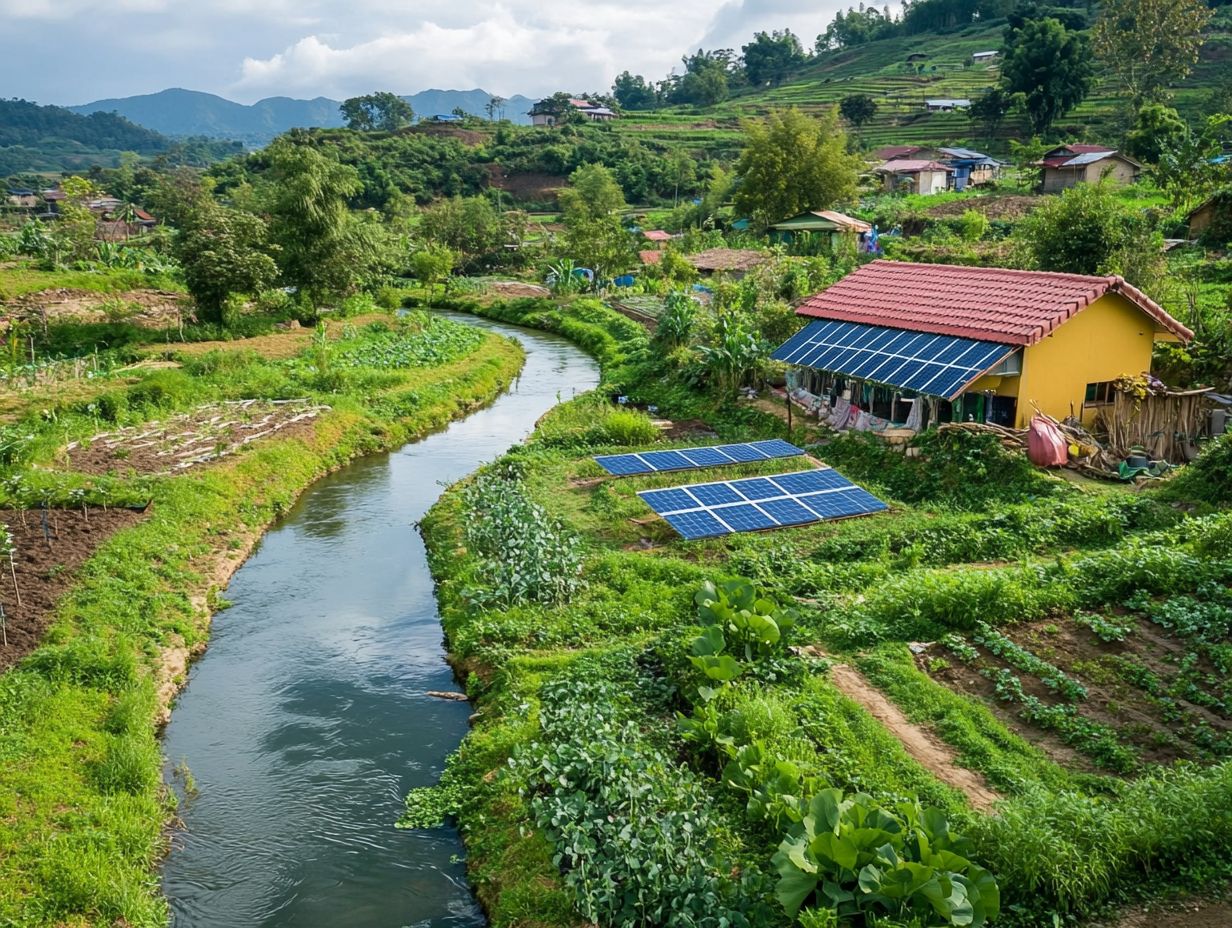
Examining case studies and best practices in water management unveils the profound effectiveness of sustainable practices in tackling water scarcity and optimizing resources.
These insights spotlight innovative techniques and illustrate the tangible benefits that arise from such approaches. For instance, regions implementing rainwater harvesting systems experience remarkable improvements in their local water supply.
The adoption of managing whole areas of land to improve water quality in various areas has rejuvenated aquifers and boosted agricultural yields while positively impacting local economies.
By analyzing these compelling examples, it becomes evident that they provide practical solutions and serve as inspiring models for other regions facing similar water challenges. This further emphasizes the significance of integrated water resource management.
Individual Actions for Sustainable Water Management
Your individual actions hold immense power in fostering sustainable water management. By adopting simple yet effective practices, you can make a significant impact on water conservation efforts.
Simple Steps to Conserve Water on a Daily Basis
- Fix leaks promptly to prevent unnecessary water loss.
- Utilize water-efficient appliances to lower your bills and reduce demand on local water supplies.
- Be mindful of your usage take shorter showers and turn off the tap while brushing your teeth.
When these small yet impactful adjustments become part of your routine, the cumulative effect can significantly enhance collective conservation efforts, ensuring that this invaluable resource is preserved for future generations.
Frequently Asked Questions
What is the definition of sustainable water management?
Sustainable water management refers to the effective and responsible use, distribution, and conservation of water resources to meet the needs of present and future generations without depleting or harming the environment.
What are some key elements of strategies for sustainable water management?
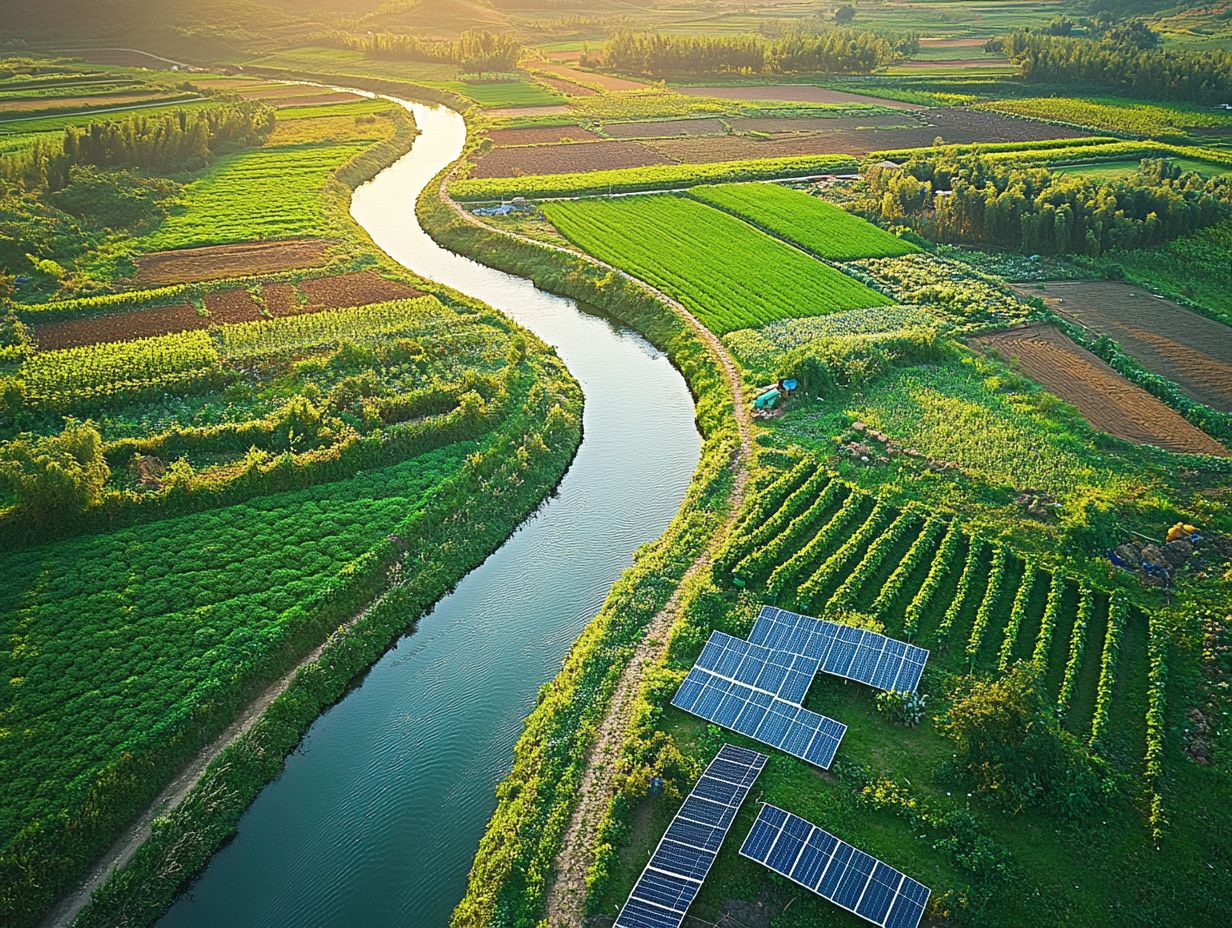
Some key elements include:
- Efficient water use
- Integrated water resource management
- Conservation and protection of water sources
- Stakeholder engagement and participation
Why is sustainable water management important?
Sustainable water management is vital for preserving the planet’s limited freshwater resources and ensuring access to clean water for human use, agriculture, and industry. It also plays a crucial role in mitigating the impacts of climate change and protecting ecosystems.
What are some effective strategies for sustainable water management?
Effective strategies include:
- Rainwater harvesting
- Wastewater treatment and reuse
- Water-efficient technologies
- Watershed management practices
How can individuals contribute to sustainable water management?
Individuals can contribute by practicing water conservation in their daily lives, properly disposing of hazardous substances, supporting sustainable water projects and policies, and raising awareness about the importance of water conservation.
What role do governments play in promoting sustainable water management?
Governments play a crucial role by developing and implementing policies and regulations, investing in water infrastructure and technology, and providing support and funding for water conservation and management initiatives.
Start conserving water today! Every drop counts!


